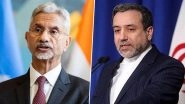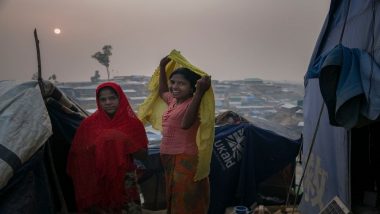India is set to deport seven Rohingya Muslims back to Myanmar after they entered Assam illegally. The men have been held in a prison in Assam on charges of illegally entering the country and are due to be sent back on October 3, the UN Special Rapporteur on racism, Tendayi Achiume, said Tuesday.
But, Achiume who is a United Nations legal expert has voiced concern over New Delhi’s action. "Given the ethnic identity of the men, this is a flagrant denial of their right to protection and could amount to refoulement," the law professor said in a statement.
Refoulement means the forcible return of refugees or asylum seekers to a country where they are liable to be subjected to persecution. According to the 1951 Refugee Convention of the UNHCR, the core principle of the convention is non-refoulement, which asserts that a refugee should not be returned to a country where they face serious threats to their life or freedom. This is now considered a rule of customary international law.
"The Indian government has an international legal obligation to fully acknowledge the institutionalised discrimination, persecution, hate and gross human rights violations these people have faced in their country of origin and provide them the necessary protection." Achiume said. She also said that New Delhi was obliged to refer Rohingyas under its custody to the UN refugee agency to assess their protection needs.
More than 700,000 ethnic Rohingya fled an offensive by Myanmar troops launched nearly a year ago in reprisal for attacks on border posts by Rohingya rebels who took up arms against the ill-treatment of the country’s minority. Myanmar’s government says the Rohingya do not ethnically belong to the country and were brought as indentured labour by the British during Colonial times.
The United Nations has termed the repression "ethnic cleansing" and "genocide". Meanwhile, Bangladesh Prime Minister, Sheikh Hasina at the UNGA accused Myanmar of not keeping its commitment to take back Rohingya Muslims. Hasina's remarks came as the U.N. Human Rights Council agreed to set up a team to collect evidence of alleged human rights violation crimes and to punish the guilty.
The International Criminal Court too has said that it has jurisdiction in the crimes committed against the Rohingya in Myanmar and is looking at forming charges against certain officials in the Myanmar’s military junta. Myanmar's army has denied nearly all wrongdoing, insisting its campaign was justified to root out Rohingya insurgents.
But, the UN expert said she was "appalled" at the amount of time the seven men from Kyauk Daw township in central Rakhine state had been detained in Assam.
"Prolonged detention of this kind is prohibited," Achiume said. "It could be considered arbitrary, and could even fall under the category of inhuman and degrading treatment." The scheduled deportations follow an Indian government order last year to return Rohingyas, but India's Supreme Court is still considering a petition challenging the order on the grounds it was unconstitutional.
The UN expert said nearly 200 Rohingyas are known to be detained in India on charges of illegal entry. "We urge the government of India to abide by the international norm of non-refoulement and protect the rights of asylum seekers and refugees including Rohingyas," she said.
While successive waves of Rohingyas have fled into Bangladesh, small numbers have found their way to India and Nepal while a small community has also been established in Pakistan. Outgoing Director General of Border Security Force (BSF) while interacting with media on the last of his office had said that the paramilitary force had successfully contained the influx of Rohingyas into India. He also claimed that smaller groups of the community always tried to enter into the Indian territory, but the paramilitary force had not allowed them to enter. (With agency inputs)
(The above story first appeared on LatestLY on Oct 03, 2018 12:50 AM IST. For more news and updates on politics, world, sports, entertainment and lifestyle, log on to our website latestly.com).













 Quickly
Quickly


